On food and hospitality
If I have to identify a superpower, that would be to make people feel welcomed and at home.
Just before summer, I booked a consultation with to rethink, restructure, and inject new life into this newsletter. She has a very distinctive way of working with you and making you reflect on what you do, how you do it, and think about your values and uniqueness: her long list of questions looks like a psychoanalytic session, that opens up new interesting perspectives on your writing.
Among her questions, one particularly struck me: which is your superpower?
It was not immediate, but then I started thinking about one of the compliments I receive more often after a cooking class: you made us feel welcomed, you made us feel like we were in a family. So, maybe, my superpower could be l’accoglienza, a warm sense of hospitality…
Which is your superpower?
Hospitality was deemed sacred within Greek culture. It was a sacred bond, a set of unwritten rules that demanded enormous respect for the guest, a form of solidarity and friendship that lasted from generation to generation, influencing the fates of wars and entire peoples.
The sacrality of hospitality informed also the Roman culture, and afterward the generosity of the Mediterranean people, and reached us with the lavish banquets you might have had the chance to experience in Southern Italy.
Years ago, during my previous life as an employee in a national olive oil association, I visited some friends I had met during a food fair in Andria, Puglia. They invited us to join their family for a Sunday lunch in the countryside—it is very common for people in Puglia to also own a very basic, rustic house in the nearby countryside, where they often have their vegetable garden, a fruit orchard, olive trees…—. We sat down to a deluge of homemade pasta, preserved vegetables, beans cooked al fiasco (in a flask nestled next to the embers in a fireplace), dessert, house wine, and home-brewed amaro to digest.
They felt a moral obligation to feed us with their freshest ingredients—cherries and almonds—, cultivated just behind the house, and to let us taste what they had prepared for dinner, saddened that we could not stay longer. We were their guests, they honored our presence with generosity and a warmth that not intimidated us but made us feel part of the family. Fifteen years have passed, but I still remember that cozy feeling of being welcomed, the food a means to show love and gratitude.
The second time we visited them on the way to Salento, we left with a can of their excellent extra virgin olive oil—isn’t olive oil the best gift you can receive?—and a crate of peaches that inundated our car with their heady aroma.
The sense of hospitality is ingrained in my family, in the very walls of this house where I am now living, and the proof is this marble table I am now lying over while typing at my computer, searching for some respite from the summer heat.
During World War II, my grandma’s family hosted friends and relatives in their farmhouse. Many families were fleeing the town to seek refuge in the countryside, a safer place where a thriving vegetable garden and the nearby woods would also ensure better food provision. Each room of the house welcomed an entire family, nights were spent playing cards with neighbors and with the young deserters hidden in the barn. They gave each other support and hope.
When the war was over, that family thanked my great-great-grandfather for what they had: as the son was a shoemaker, he made leather shoes for my grandma, and the father, the owner of a local marble cave, gifted my family with a yellow marble table.
You can read the story of this table here: We are (dreaming of) renovating our home kitchen, plus the story of a marble table that has been in my family since the 1940s
Over the years, this house became the refuge of all of my grandma’s nieces and nephews, who would come for Sunday meals with their fiancée before they were formally introduced to the family. There are recipes that mark those meals, like my nonna’s tagliatelle with ortolina, prosciutto cotto, oregano, and cream.
Growing up, it was completely natural for my parents to let me have friends over for lunch after school. My mum is the most generous person I know, and nobody would leave the house empty-handed: jars of homemade jam or tomato sauce, eggs, freshly picked zucchini from the garden, or a slice of that cake they loved so much.
In my twenties, searching for new friends and guided by a craving for vicariously traveling, I joined CouchSurfing and, instead of offering a couch where to crash to passing-by travelers, my garden became the meeting point for local gatherings: from an olive-picking experience followed by a traditional Tuscan lunch to a walk in the woods with cakes and tea to close it, from a music concert that drew more than one hundred people to smaller, more intimate house concerts—the best one? when Nordgarden sang in our living room. I still have goosebumps.
Over the years, my friends and my sisters’ friends often considered our family their Italian family.
My parents, and my grandma, welcomed with a huge smile my crazy ideas, my friends, and hundreds of people from all over the world: different languages, walks of life, and age, they were never a barrier to new friendships. This is one of the traits I love most about my parents, one I hope to have inherited, the one I hope to pass by to Livia.
When I had to create a new career from scratch, I made hospitality and food the core of my new life.
If I have to identify a superpower, that would be to make people feel welcomed and at home. We open our house and welcome people from all over the world into our lives when they join one of our cooking classes.
They meet Noa, our Maremmana dog, a sweet, calm giant white dog who greets everyone at the gate, demanding cuddles. They meet my mum, who always pops into the studio to say hello. She doesn’t speak English, but she makes her comments on the good smell lingering in the kitchen, or her favorite—quanta bella gioventù! such beautiful young people!—understandable to everyone, whatever their mother tongue. If they are lucky, or quick enough, they can see my 96-year-old grandmother sneaking into the back of the house—she is very shy—or watch my dad playing archery in our garden.
We share stories, food, and memories, all part of a cooking class that has not been staged to look like a family meal, but naturally evolved into a nuanced experience, influenced by the sacrality of hospitality that informed my life since the early years.
Hospitality means welcoming likes and dislikes while working on a menu that respects everyone’s expectations, guiding my guests among the market stalls on the discovery of seasonal produce. It involves picking the best ingredients for them: taralli and local pecorino to nibble on just before rolling out fresh pasta, zesty clementines, or ripe cherries on a bowl on the counter as a quick snack.
It means sharing not only a recipe— a simple set of instructions that could be found online or in a cookbook—but also the layered universe of meanings, stories, characters, and emotions connected to that recipe, inviting every student to take part in our family, if only for a day.
And food is still my favorite means to make people feel welcomed and loved.
After your feedback, we activated an unprecedented discount that will be active just for one month. To celebrate my birthday, you can join our newsletter with a 35% discount!
If you can’t hop on a plane to join us for one of our cooking classes in our studio in the Tuscan countryside, well, here you will find the second best thing: well-tested recipes, personal stories and interactions, travel tips, online events, cookbook roundups, brilliant guests, and a warm sense of home and hospitality..
Also, remember that last year we activated a referral program to reward our most enthusiastic supporters.
By sharing our newsletter, you get, at the same time, special benefits such as complimentary subscription months.
My favorite recipes to make people feel at home
Bake my Southern family lasagne
Have a jar of taralli ready for an improvised aperitivo
Learn pantry recipes like this puttanesca pasta to effortlessly cobble up a meal
Offer them a homemade limoncello




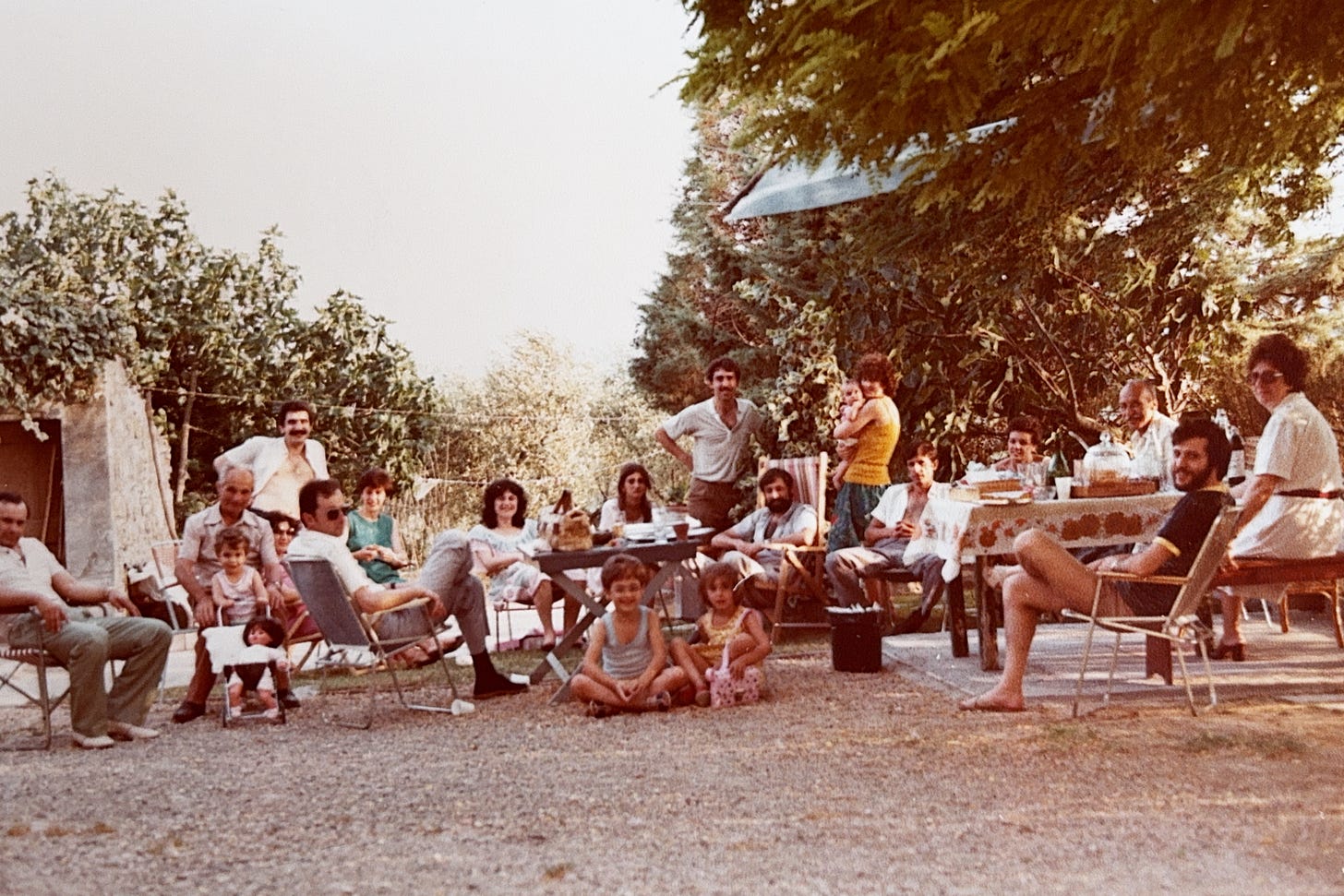
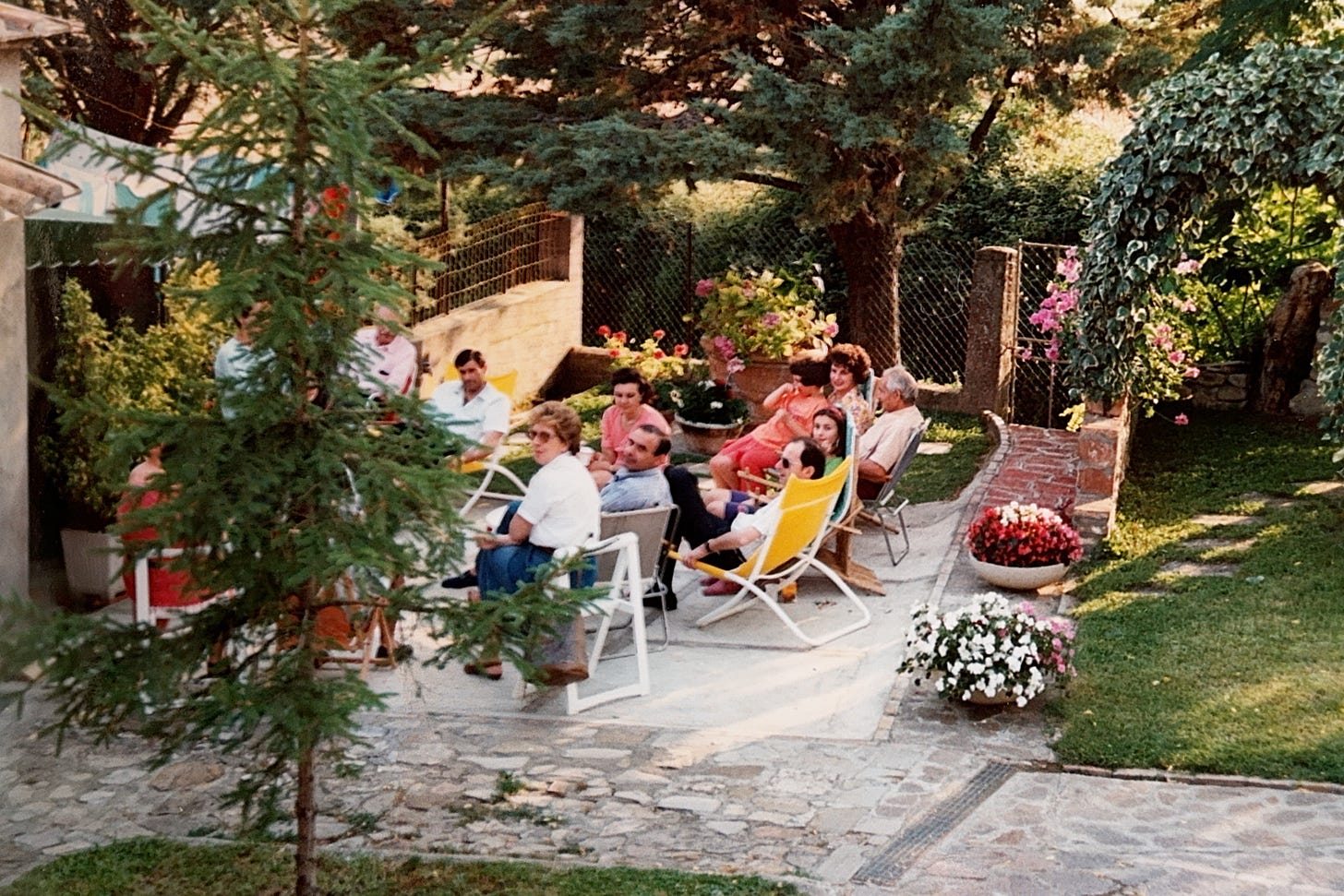
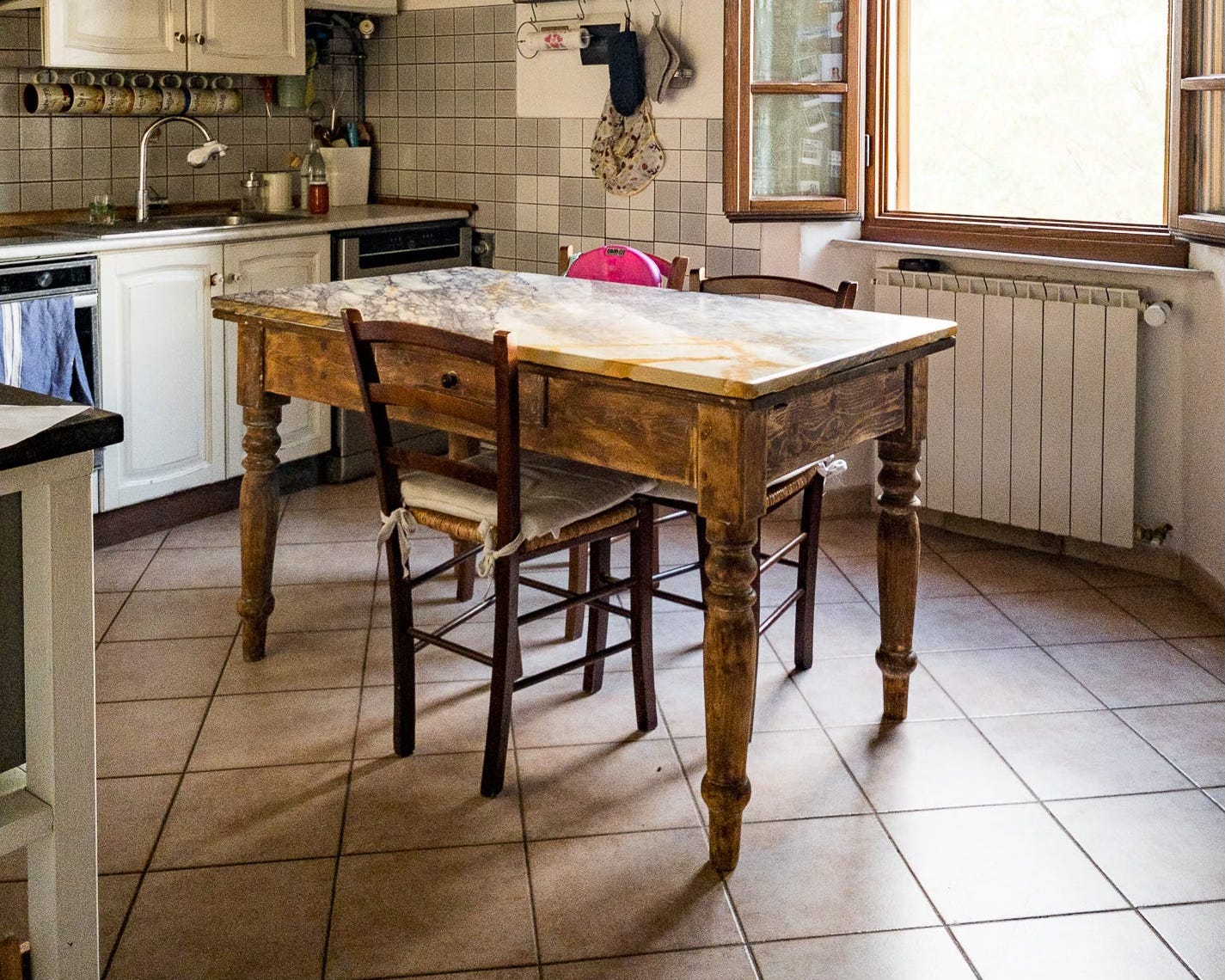

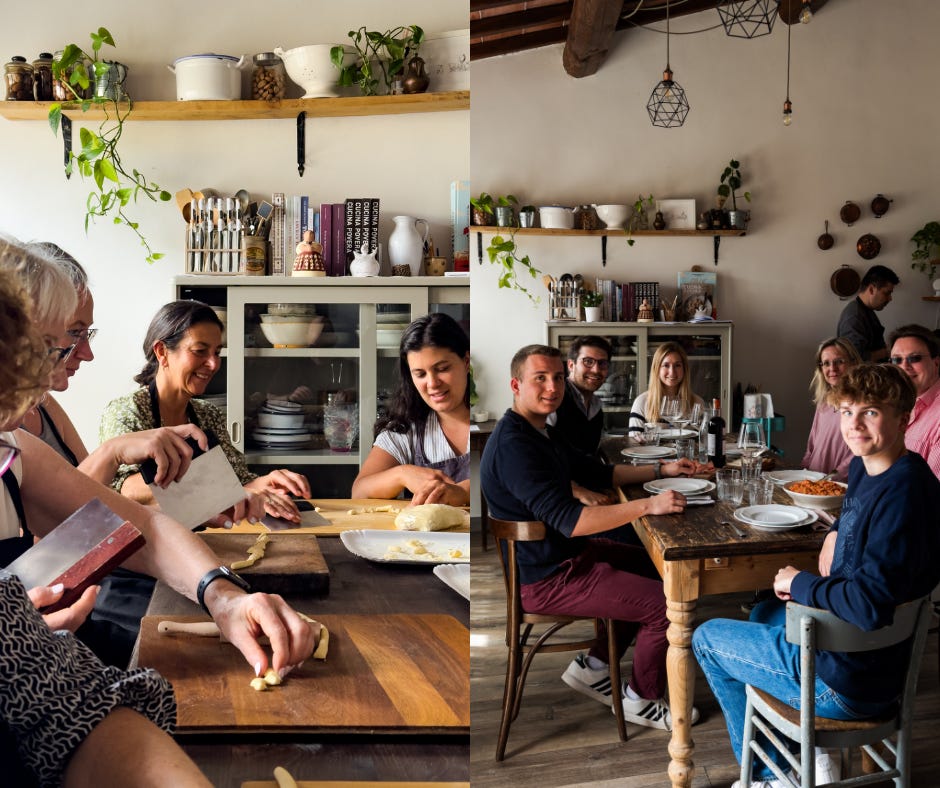
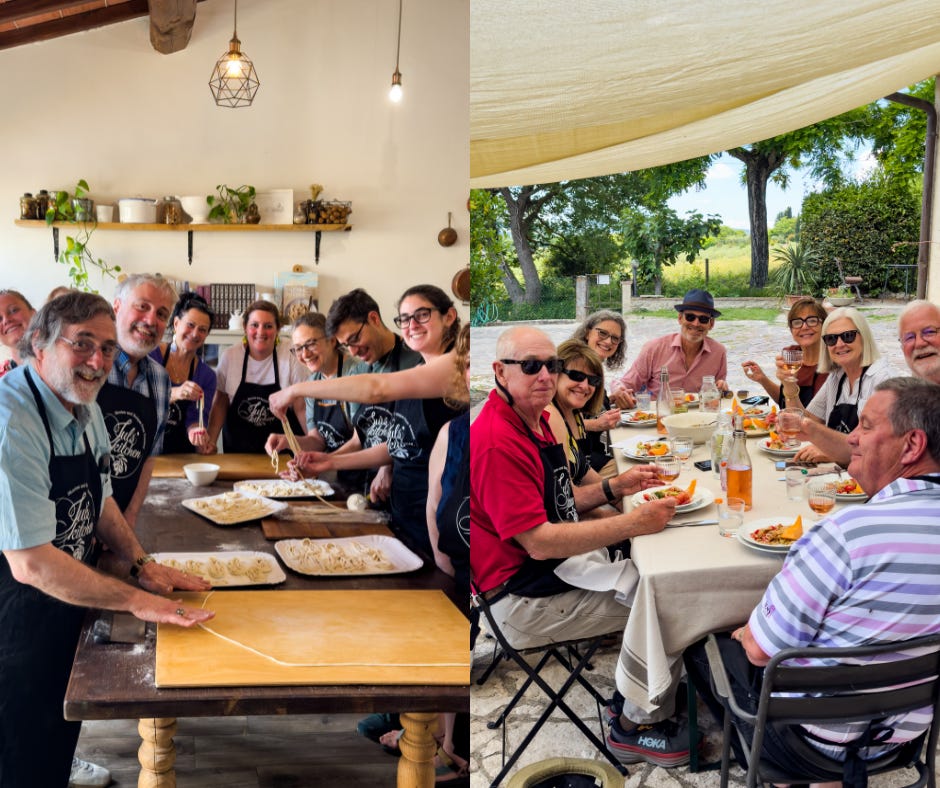

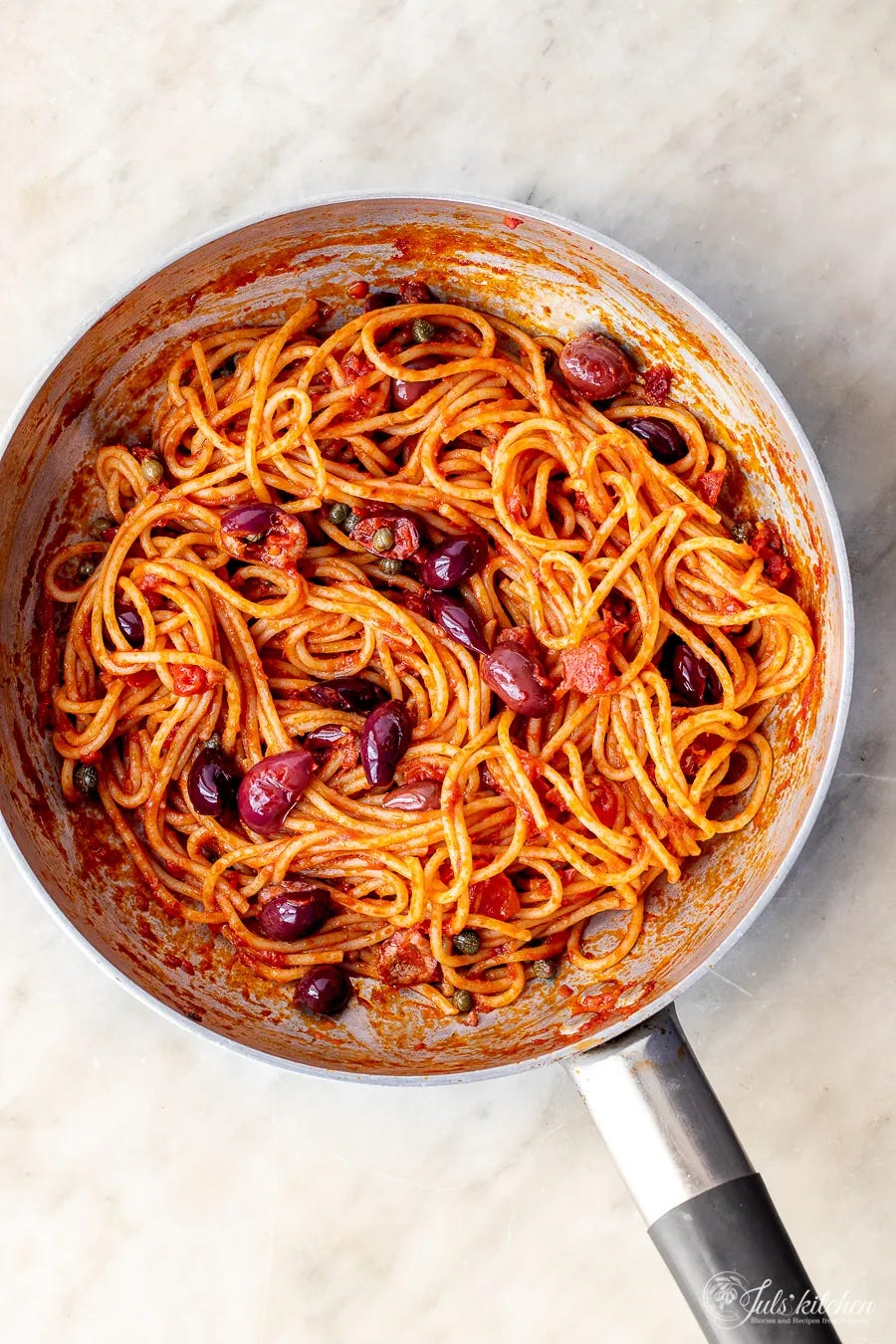
Your story telling ability and writing style that makes the reader feel like they are at your house could be a second superpower. Love reading your writing.
Such a beautiful essay, Giulia!